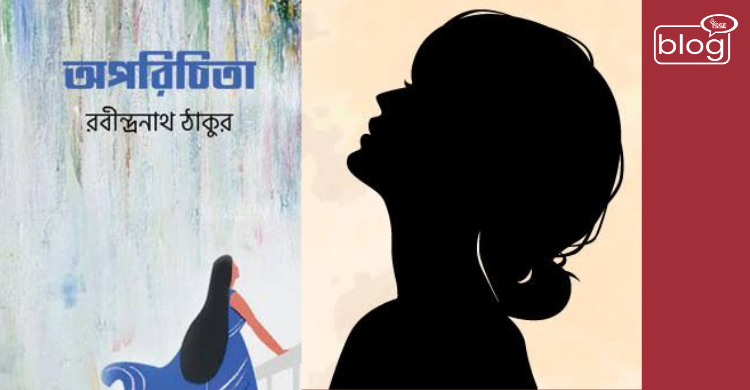A Story That Changed Perspectives
Probably, the dowry system is not a major concern in society nowadays. But that does not change the fact that Bangladesh was once heavily cursed by dowry. With the flow of time, it has lessened, but it is still around society. It has not changed overnight; thousands of stories, publicity, awareness campaigns, and various activities have contributed to the change. One such powerful story is Oporichita, which highly influenced people and helped to change their viewpoints.
Oporichita
Oporichita, written by Rabindranath Tagore, is a portrayal of the sufferings and subjugation of females under patriarchal domination. Rabindranath, in some other short stories, explored dowry, but Oporichita mainly protests against dowry. It is a joint protest of men and women against dowry and their triumph. Dena Paona and Hoimonti are the two other short stories of Rabindranath in which a father, one educated and the other uneducated, is both the victim of dowry.
- Now, a thing comes to mind: what makes Oporichita powerful?
- How educated and uneducated both suffered, but in Oporcichita found triumph against dowry.
The modernity of this short story makes it a timeless tale. It provides a lesson to stand strong against any injustice.
Rabindranath and Dowry
From the life of Rabindranath, we know he had to pay a heavy dowry for marrying off all three of his daughters. Maybe Rabindranath dreamt of being a powerful father like Shambhunath, who is a guide to walk and stand strong for his daughter.
Oporichita was written in about 1916. Considering the year and social context of that time, it was never easy to protest against social rules. To some extent, even after 100 years, the bride’s side feels obligated to keep the groom’s side satisfied. This situation and the acts of Shambhunath and Kallyani, of 100 years ago, make it a timeless tale.
The Story
Simply, the short story goes as an event of a wedding is taking place, where the groom’s side dehumanizes the bride’s side. The dowry system of the society becomes evident. Unlike other situations, the female character takes a stand against the oppression and cancels the wedding. This stuns the crowd. Later, Kallyani takes an oath to serve the nation by empowering and educating women. In the whole journey, she had her father by her side.
Patriarchy
In the short story, the first female character we find is Anupom’s mother. In the absence of Anupom’s father, his mother should have been the head of the family. But a patriarchal society does not allow any female to take control over anything. As a result, we see Anupom’s maternal uncle taking control of everything. Thus, at the beginning of the story, we find patriarchal domination in the society.
Change Maker Kallyani
Kallyani is a symbolic name. Her character and features act as a guideline for females who are oppressed, subjugated, and dominated in a patriarchal society. Kallyani is first visible in the train, someone who can be identified from others in a crowd. This is because of her characteristics. When they were illegally forced to leave the train, Anupom, with an education and a degree, agreed, but Kallyani. She protested, and it’s proof of real education. Women in that society were not allowed to speak or laugh out loud. But Kallyani could because of real education. A woman whose marriage is broken usually finds herself in a shattered condition, but Kallyani took the oath to serve the country. This is her strength. This is what makes Kallyani.
- She could never have done this without the support of her father.
- Her father and his given education made Kallyani so.
Rabindranath Tagore’s Oporichita: The Timeless Protest
Rabindranath Tagore’s short story Oporichita is a portrayal of the sufferings and subjugation of the central female figure, Kallyani, under the patriarchal domination and her form of goddess against the exploitation, suppression, and unjust regulations imposed by society. The story was written ahead of time to portray an advanced progressive view regarding marriage, dowry, social expectations, and women’s autonomy in Bengali culture. This blog finds Oporichita significant because of its relevance in the broader social context, even after many years in modern Bengali culture. Kallyani and her father paved the way to stand strong against dowry and social rules by defying entrenched patriarchal domination and breaking the shackles.
To read more blogs, click here
Md. Ferdous Wahid
Intern, Content Writing Department
YSSE

